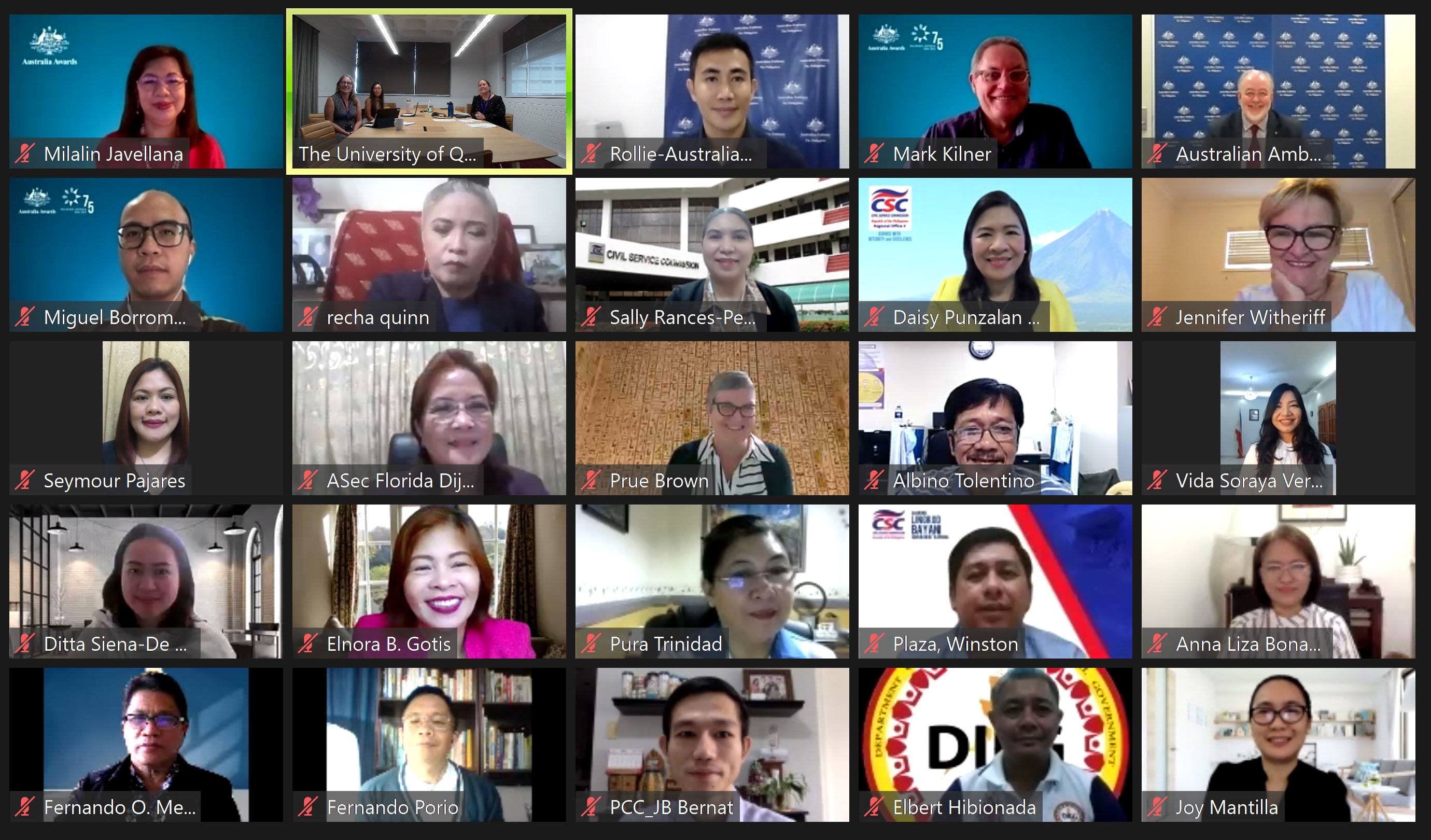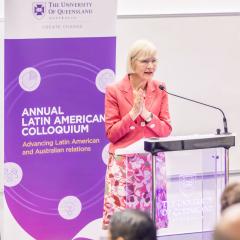The Australia Awards and Alumni Engagement Program – Philippines (AAAEP-P), in collaboration with The University of Queensland (UQ), delivered a short course in Gender, Equity, Disability and Social Inclusion (GEDSI) Mainstreaming to a number of civil service agencies from June 2020 to March 2021.
 The short course, which was implemented by UQ’s International Development Unit, has equipped participants with the knowledge and tools to lead change in a public sector context and implement effective GEDSI mainstreaming policies and action.
The short course, which was implemented by UQ’s International Development Unit, has equipped participants with the knowledge and tools to lead change in a public sector context and implement effective GEDSI mainstreaming policies and action.
The cross agency training program, designed to improve the competency of course participants and improve GEDSI outcomes for partner agencies, has drawn on world-class expertise from UQ’s School of Political Science and International Studies, Ateneo de Manila University’s Department of Political Science, and Syracuse University’s Burton Blatt Institute.
Disability Inclusion Specialist from the Burton Blatt Institute, Mr Barry Whaley, said that it was a fantastic experience working with colleagues from UQ and Ateneo de Manila University.
“Our belief is that this course will result in positive change within the culture of Philippines government agencies, organisations, and the community. We were privileged to play a small part in this project and we look forward to future opportunities with our UQ colleagues,” Barry said.
A comprehensive set of training modules, delivered entirely online, was designed by a team of Australian, Filipino and American academics and professionals, with world-leading international expertise in policy design, guidance and implementation. Throughout the course, participants developed concepts, principles, knowledge, soft skills and practical capabilities for the attainment of enhanced GEDSI Mainstreaming across agencies.
Course Leader, UQ’s Dr Prue Brown, said that it was an interesting challenge to deliver a course during a global pandemic, but that addressing GEDSI issues has never been more relevant.
“Many of the participants were working from home during some or all of the course, and we all saw first-hand the challenges faced in balancing work and home responsibilities. It is a testament to the hard work and dedication of the participants that they were able to complete the course requirements”.
She said that online delivery has strengths and weaknesses.
“Because the course was online we were able to secure a fantastic team of global experts. The breadth of knowledge and experience our fantastic team brought to the course meant that participants not only benefitted from the theory that we covered, but also from the practical insights these experts brought to bear.
“Our approach recognised that GEDSI is a complex problem. This allowed participants to develop generic competencies for addressing such problems, as well as a far greater appreciation of GEDSI issues in the Philippine context and how to tackle them. I am confident that the participants are now better equipped to deal with the issues that will confront them in their future careers,” Prue said.
Course participant Dionna Falamig from the Public Private Partnership Centre said the short course has equipped her with the knowledge and skills to lead inclusive and sustainable change in her workplace.
“The GEDSI Mainstreaming Short Course enabled me to broaden my knowledge, competency, and capacity to be a GEDSI champion,” Dionna said.
April Mendoza, a course participant from the National Economic and Development Authority said that the course is very timely, as the world recovers from COVID-19.
“The theories we have learned, as well as the stories shared by the UQ Delivery Team, highlighted the importance of really working towards inclusive development and providing opportunities to vulnerable and marginalised groups, especially as we recover from this pandemic,” April said.
Josephine Altura, a course participant from the Civil Service Commission said the course encouraged her to reflect on the way she conducts herself at work.
“It has helped me be more conscious of my language and my thoughts, and I have become more observant of the terms that we are using in our planning. Even my colleagues have noticed a change in my attitude,” Josephine said.
An integral element of this training program has been action learning through the development of a Re-Entry Action Plan (REAP), and over the next five months participants will implement their REAPs within their workplaces. Applying the course content to developing the REAP, implementing the plan and critically reflecting on the outcomes achieved will strengthen leadership and problem-solving skills, as well as reinforce theoretical concepts covered in the training modules.
“We have some exciting projects about to commence, which I fully expect to deliver positive outcomes across the public sector and beyond,” said Course Leader Dr Prue Brown.
Participants on the course came from a range of agencies, including the Civil Service Commission, Department of the Interior and Local Government, Department of Foreign Affairs and Trade, Department of Transportation, Department of Trade and Industry, National Economic and Development Authority, Public Private Partnership Centre, Department of Public Works and Highways, Philippine Competition Commission, and Department of Budget and Management.
Learn more about AAAEP-P programs and UQ International Development’s work



